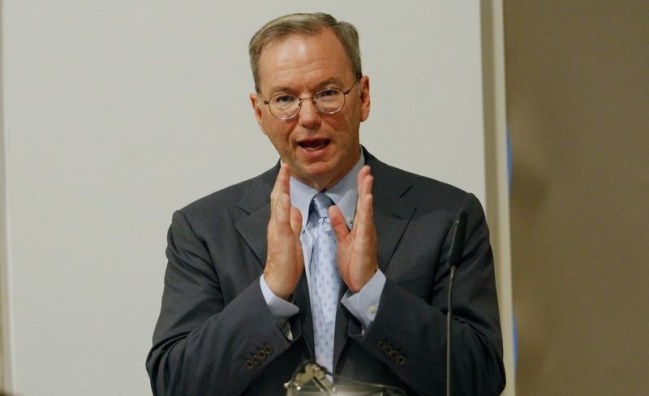
He may have a point. In a speech Wednesday, Google’s Executive Chairman Eric Schmidt clearly said that efforts by the United States and Britain to block Internet access to file-sharing websites would endanger freedom of speech and be a “disastrous” step toward the censored Internet in China, reports the Guardian. The comments came during the keynote at Google’s Big Tent conference in London.
Late last year, the U.S. government began seizing dot com domains from sites accused of harboring pirated media. Most of these were file-sharing sites like The Pirate Bay. However, there are proposed laws that may make it illegal to use DNS (domain name systems, which give websites .com names, etc.) to “encourage” file sharing. Britain has similar laws that may go into effect. Schmidt made a point to say that Google opposes these efforts completely.
“If there is a law that requires DNSs to do X and it’s passed by both houses of congress and signed by the president of the United States and we disagree with it then we would still fight it,” said Schmidt. “If it’s a request the answer is we wouldn’t do it, if it’s a discussion we wouldn’t do it.”
Taking it a step further, the former Google CEO directly referenced the Chinese government, which polices all of its media very tightly and does not allow opinions that dissent from the views of the government.
“I would be very, very careful if I were a government about arbitrarily [implementing] simple solutions to complex problems,” he said. “So, ‘let’s whack off the DNS’. Okay, that seems like an appealing solution but it sets a very bad precedent because now another country will say ‘I don’t like free speech so I’ll whack off all those DNSs’ – that country would be China. It doesn’t seem right. I would be very, very careful about that stuff. If [the UK government] do it the wrong way it could have disastrous precedent setting in other areas.”
Google has had run-ins with China before. Last year, the company threatened to pull out of China completely after the Chinese government hacked into its servers and began trying to force Google to censor its search results.
While Schmidt is often criticized for saying “odd” things and having an offbeat sense of humor, his words here are fairly direct and honest. If we begin censoring the Internet, who is to say where it will end? Prosecuting criminals is one thing, but tampering with the freedom of the net is another.


